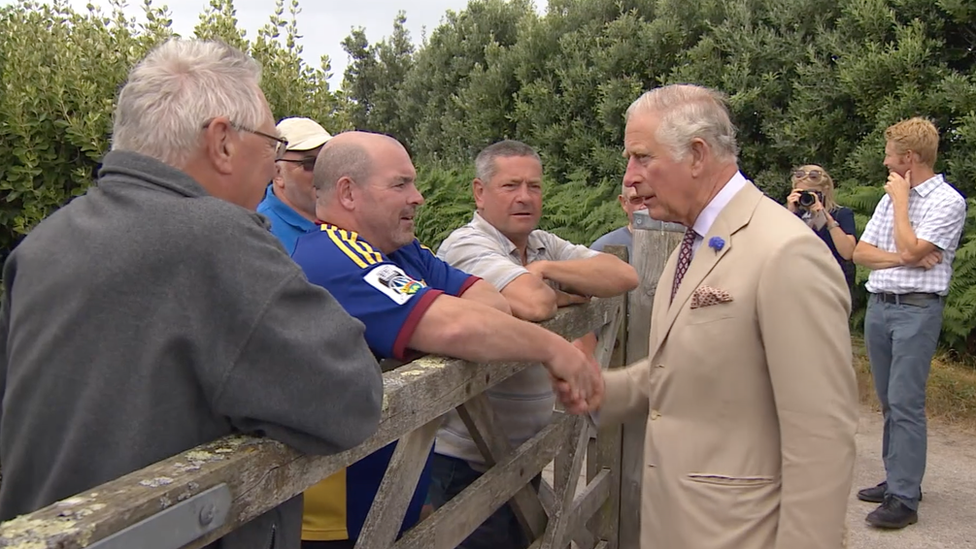Coronavirus: Isles of Scilly 'left with nothing' as tourism collapses
- Published
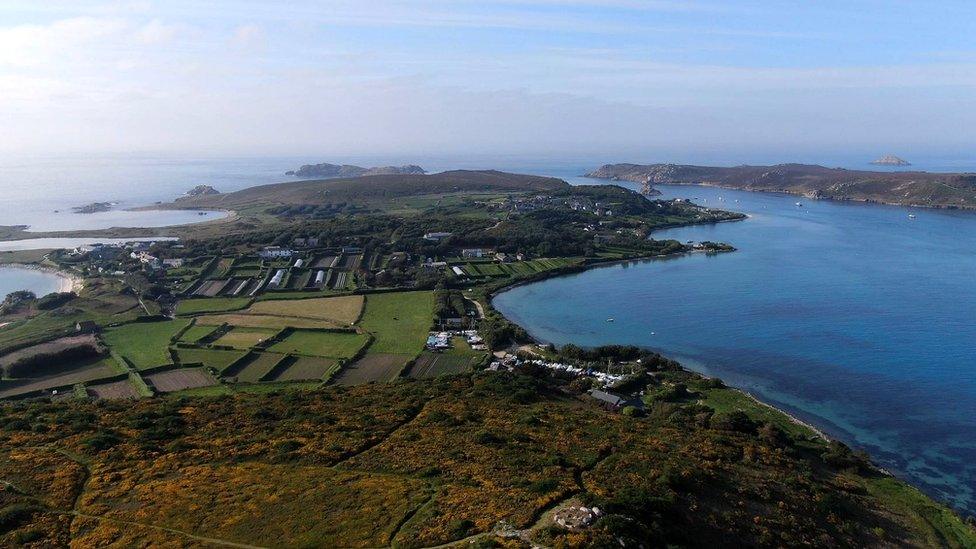
Tourism is the main industry in the Isles of Scilly, including the island of Bryher
Residents in the Isles of Scilly say they have been "left with nothing" while the tourism industry is "in a desperate situation".
The local economy on the islands are centred around holiday lets and self-catering accommodation, which have not had any income since lockdown began.
Many business owners pay council tax instead of business rates, meaning they are left without financial support.
The islands' MP said financial support to plug the gap was on the way.
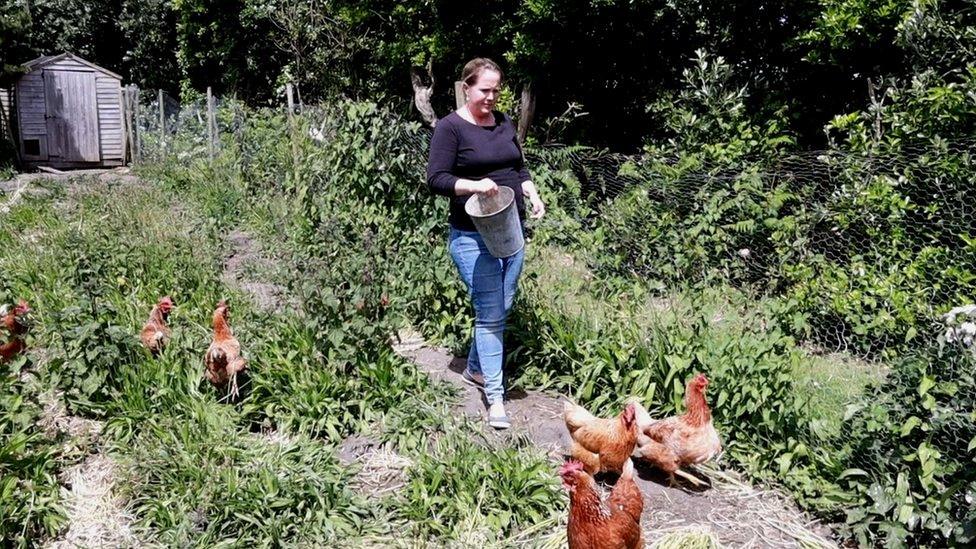
Issy Tibbs said the situation on Bryher was "as desperate as it can be"
Issy Tibbs inherited a self-catering business in 2016 on the island of Bryher - part of the Isles of Scilly - but has no access to business rates or self-employment allowance.
"We have applied for everything we can, but unfortunately we have just missed out in every way," she said.
"Over here on the Isles of Scilly, self-catering is huge part of the island economy.
"It is our income, it's our main income, and now we have been pretty much left with nothing."
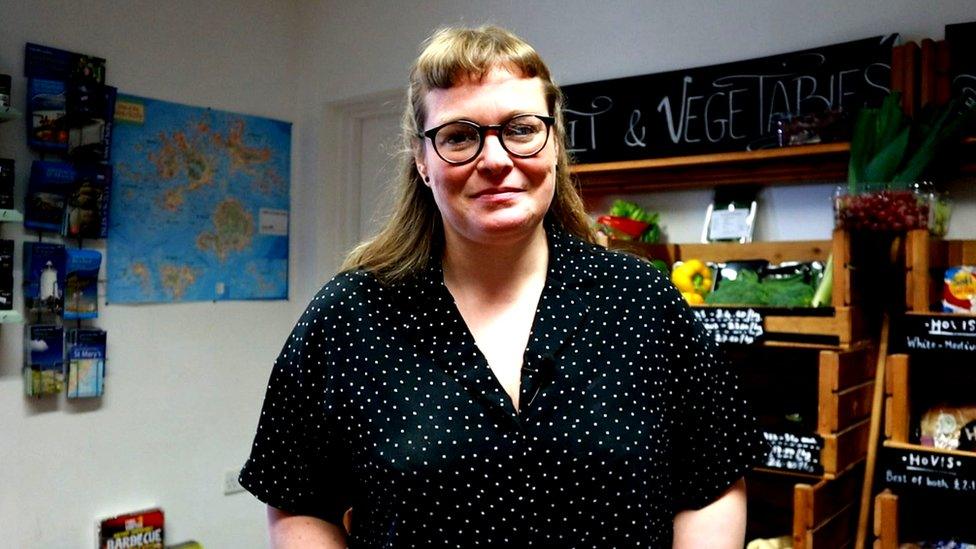
Aaron Haile and her husband have stopped paying themselves a wage
Aaron Haile owns and runs the shop and post office on Bryher with her husband after buying it last year.
"We were looking forward to running our second season, but obviously coronavirus has changed everything quite significantly," she said.
Without any tourism on the island, the only customers the shop has is the local residents.
"We have no income, we're currently taking advantage of a hardship scheme run by the local council, so we're essentially buying food from our business to keep ourselves going," she said.
"It's been emotionally tough. People are trying to remain positive and upbeat but that's getting more and more difficult, we could end up in more debt than we ever imagined."
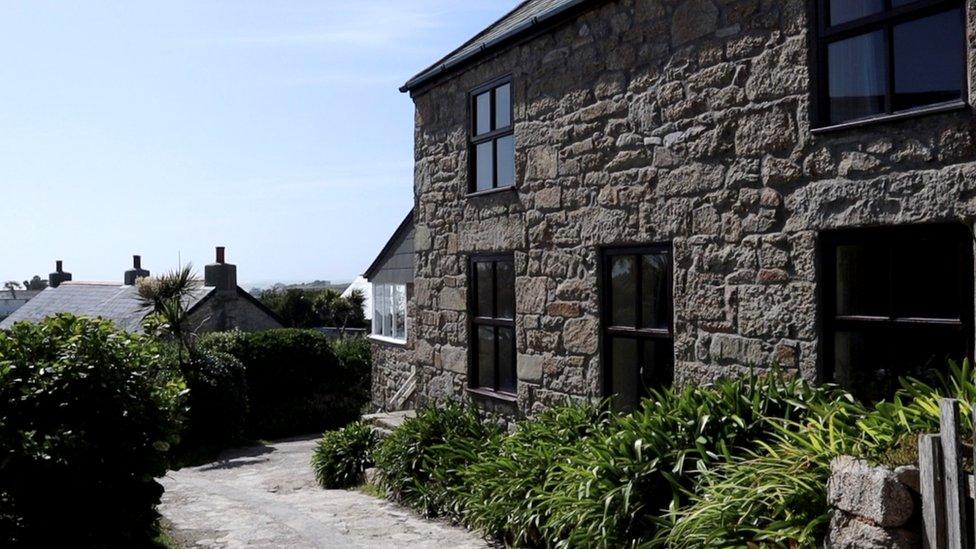
Amy Langdon said her holiday lets business was facing 18 months without any income
Amy Langdon, who also runs self-catering units on Bryher, said her family were considering moving out of their home and into one of the holiday units.
"Unfortunately we're not eligible for any funding at all," she said.
"We pay council tax rather than business rates, so we don't qualify for the allowances either.
"We need council funding desperately. We've had no other help, we still have bills to pay."
The government has given councils the opportunity to start a discretionary fund by increasing business grants by 5%.
"In our view that should go to those businesses that fell through the nets of the business grant," said Derek Thomas, MP for St Ives and the Isles of Scilly.
The Council of the Isles of Scilly said it had £211,000 to offer to businesses, which will be invited to apply for funding.

RISK AT WORK: How exposed is your job?
SCHOOLS: When will children be returning?
LOOK-UP TOOL: How many cases in your area?
RECOVERY: How long does it take to get better?
A SIMPLE GUIDE: What are the symptoms?

- Published22 May 2020
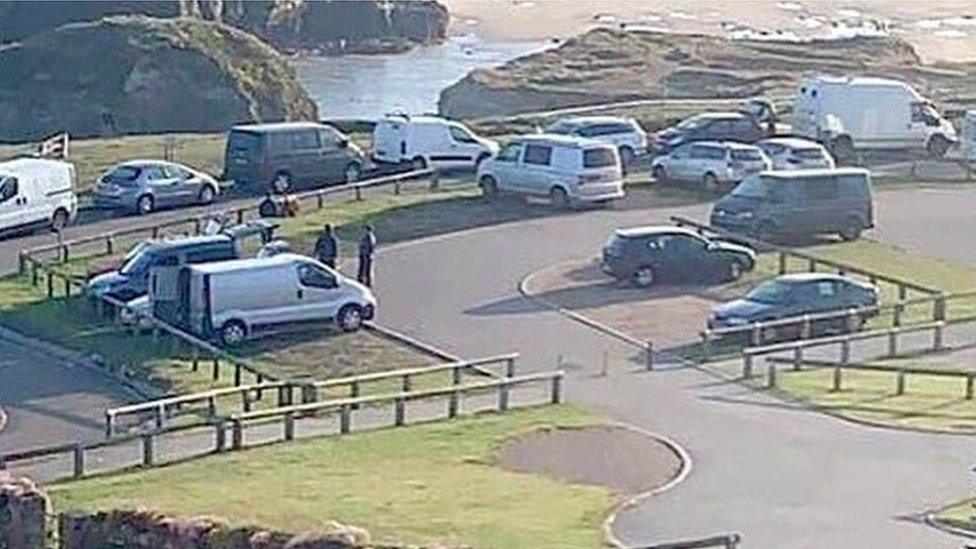
- Published21 May 2020
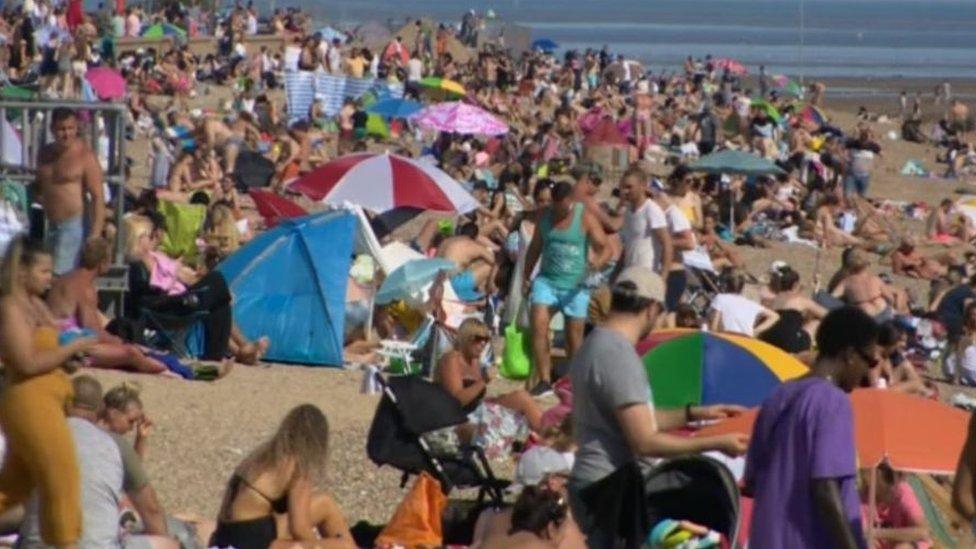
- Published18 April 2020
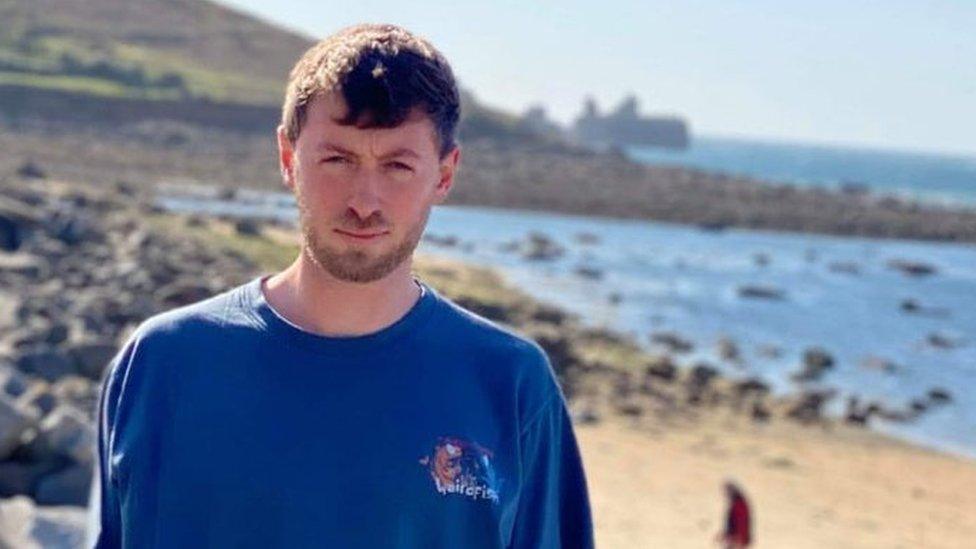
- Published23 March 2020
